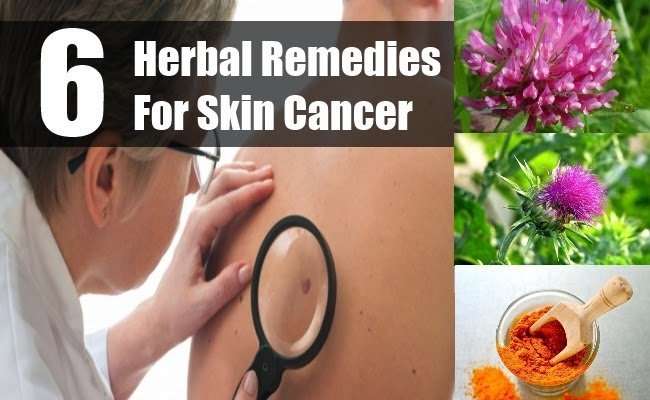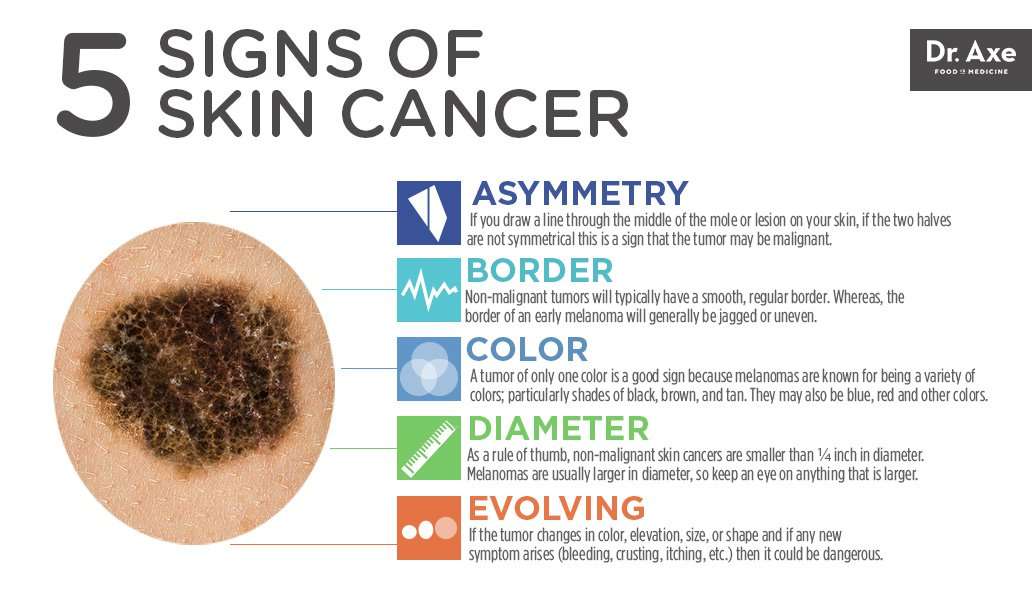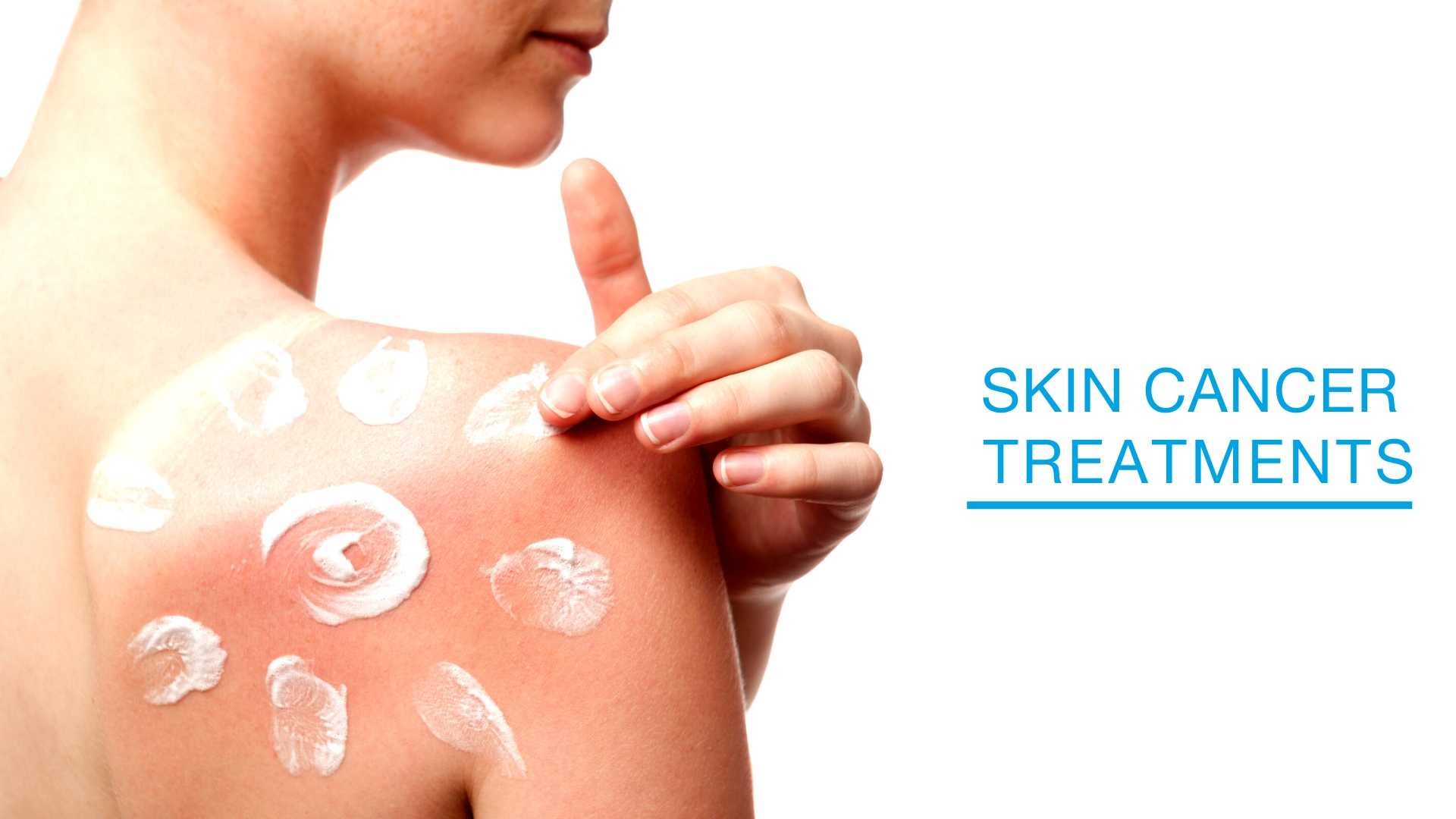A Mixture Of Coconut Oil And Baking Soda:
Raw organic coconut oil is a very enriched resource filled with anti-oxidant and antibacterial properties. It also helps in the regeneration of the cells, especially of skin. Baking soda in this mixture is known to work to make the environment alkali, and it is a known fact that cancerous cells cannot thrive in such an environment.
- A Jar
Procedure:
Dosage:
This is known to be the best skin cancer home remedy, apply this 2-3 times in a week, you can notice immediate changes just after the first application.
Skin Cancer Natural Treatment Options
Skin cancer is the most commonly diagnosed cancer among men and women. Over one million cases are diagnosed each year, with more young people having skin cancer than ever before. When you have any irregularity on the skin pulling attention to it, then you have two immediate choices.
One, you can begin to abuse yourself, with western oncology, which will start tests that can lead to provoking cancer even if there is not cancer already present. Biopsies and all tests that employ radiation are not perfectly safe. Certainly their medications and treatments are dangerous and not highly effective though in most cases skin cancer is easily treated with simple precedures.
Your second option is to cut to the chase, meaning assume the worst and starting that same day to treat oneself with a list of natural agents that are safe and effective in returning skin to its former healthy self you can begin to apply what might just save the day before one can even turn around and take some dangerous allopathic tests.
Though it is true that most skin cancers are detected and cured before they spread it is better to do this first on your own with natural oncology methods, outlined below, than western medicine that surgically excises small tumors by removal with skin scraping and electric current cauterization, frozen with liquid nitrogen, or killed with low-dose radiation.
How Often Should You Follow Up With Your Doctor
After your treatment, your doctor will recommend a regular follow-up schedule to monitor your cancer. Theyll be checking to make sure the cancer hasnt come back or new cancerous lesions havent appeared. The types of follow-up include:
A yearly skin check: Skin checks are an important aspect of detecting melanoma in its earliest, most treatable stages. You should also conduct a skin check on yourself once per month. Look everywhere from the bottoms of your feet to behind your neck.
Imaging tests every three months to a year: Imaging studies, such as an X-ray, CT scan, or brain MRI, look for cancer recurrence.
Physical exam as needed: A physical exam to assess your overall health is important when you have had melanoma. For the first two years, youll want to get an exam every three to six months. Then for the next three years, the appointments can be every three months to a year. After the fifth year, the exams can be as needed. Do a monthly self-examination of your lymph nodes to check your progress.
Your doctor may recommend a different schedule based on your overall health.
You May Like: What Is Blue Light Therapy For Skin Cancer
How Well Does The Liquid Nitrogen Treatment Work
For precancerous lesions, it is almost always successful. In the instances that the liquid nitrogen treatment is used for treating skin cancer, there is a small chance that the skin cancer could return. In the instance that it does, another round of liquid nitrogen treatment could be done, however, this is also another opportunity to visit what other treatments may be better suited for the case.
If your cancerous lesion is small, this could be the best and easiest treatment option for you. Our dermatologists will be able to help you diagnose any cancerous lesions on the skin and decide which treatments are the best option for you.
The liquid nitrogen treatment is primarily used for precancerous lesions more than it is for an official diagnosis of skin cancer. Allow for our dermatologist to determine whether or not this is a suitable treatment for you by scheduling an appointment. The team at Azeal Dermatology Institute in Boulder can provide you with the guidance that you need to take care of any diagnosis that you receive.
There Are Three Ways That Cancer Spreads In The Body

Cancer can spread through tissue, the lymph system, and the blood:
- Tissue. The cancer spreads from where it began by growing into nearby areas.
- Lymph system. The cancer spreads from where it began by getting into the lymph system. The cancer travels through the lymph vessels to other parts of the body.
- Blood. The cancer spreads from where it began by getting into the blood. The cancer travels through the blood vessels to other parts of the body.
Read Also: Is Basal Skin Cancer Serious
Diagnosis Of Skin Cancer
It is important to check your skin regularly and check with your doctor if you notice any changes.
In the majority of cases, your GP will examine you, paying attention to any spots that may look suspicious. Your GP may perform a biopsy . In some cases your GP may refer you to a specialist, such as a dermatologist, if necessary.
Certain Factors Affect Prognosis And Treatment Options
The prognosis for squamous cell carcinoma of the skin depends mostly on the following:
- Stage of the cancer.
- Whether the patient is immunosuppressed.
- Whether the patient uses tobacco.
- The patient’s general health.
Treatment options for basal cell carcinoma and squamous cell carcinoma of the skin depend on the following:
- The type of cancer.
- The stage of the cancer, for squamous cell carcinoma.
- The size of the tumor and what part of the body it affects.
- The patients general health.
Don’t Miss: What Types Of Skin Cancer Are There
How Can You Manage Stage 3 Melanoma
Managing stage 3 melanoma can be challenging. With technological and medical advances, this diagnosis may not be as severe as it once was.
After your surgery or if youre unable to undergo surgery, you may need adjuvant treatment to prevent the cancer from coming back. There is adjuvant radiation therapy and adjuvant immunotherapy. These therapies help reduce the risk of melanoma returning, but they dont increase your survival rate.
Natural Products Can Cause Side Effects During Skin Cancer Treatment
Black salve isnt the only natural treatment that concerns dermatologists. Vitamins, herbal remedies, and other all-natural products can interact with cancer treatment. Vitamin A, vitamin C, and St. Johns wort are especially worrisome. If a patient takes one of these while on chemotherapy or receiving radiation treatments, serious side effects can occur.
In Germany, many people take mistletoe to strengthen their immune system. If you have melanoma, your doctor will advise you to avoid it. German studies have found that mistletoe may cause melanoma to spread more quickly.
Dermatologists also worry when patients take vitamins and other supplements during clinical trials. Patients agree to take only the medicine being studied. Surveys, however, indicate that patients often supplement with natural products. They use these products to help strengthen their body during cancer treatment.
This is understandable. The problem is that vitamins, herbs, and other natural products can interact with cancer treatments. In a clinical trial, there is no way to know whether the drug or the interaction between the drug and an all-natural product caused a serious side effect. This could prevent potentially helpful treatments from becoming approved.
Recommended Reading: What Is The Treatment For Melanoma Skin Cancer
How Do You Know The Skin Cancer Is Gone
We are using doses that have been proven to be adequate in eliminating skin cancers. We do NOT re-biopsy the site after treatment has been completed . We use this treatment method as a non-scarring option and an additional biopsy would involve more cutting, which we prefer to avoid. We recommend a follow-up visit with the doctor four weeks after the last radiation treatment and, of course, skin checks on a regular basis.
Treating Stage Ii Melanoma
Wide excision is the standard treatment for stage II melanoma. The width of the margin depends on the thickness and location of the melanoma.
Because the melanoma may have spread to nearby lymph nodes, many doctors recommend a sentinel lymph node biopsy as well. This is an option that you and your doctor should discuss.
If an SLNB is done and does not find cancer cells in the lymph nodes, then no further treatment is needed, although close follow-up is still important.
If the SLNB finds that the sentinel node contains cancer cells, then a lymph node dissection will probably be done at a later date. Another option might be to watch the lymph nodes closely by getting an ultrasound of the nodes every few months.
If the SLNB found cancer, adjuvant treatment with an immune checkpoint inhibitor or targeted therapy drugs might be recommended to try to lower the chance the melanoma will come back. Other drugs or perhaps vaccines might also be options as part of a clinical trial.
Recommended Reading: How Bad Is Basal Cell Carcinoma
Alternative And Complementary Therapies For Skin Cancer
Once skin cancer is diagnosed, the only acceptable treatment is medical care. Alternative approaches may be useful in cancer prevention and in combating nausea, vomiting, fatigue, and headaches from chemotherapy, radiation, or immunotherapy used to treat advanced skin cancer. Be sure to discuss any alternative treatments you are considering using with your cancer doctor.
Metastatic Or Advanced Skin Cancer

It is uncommon, but non-melanoma skin cancer can spread to another part in the body from where it started. In these situations, doctors call it metastatic cancer. If this happens, it is a good idea to talk with doctors who have experience in treating it. Doctors can have different opinions about the best standard treatment plan. Clinical trials might also be an option. Learn more about getting a second opinion before starting treatment, so you are comfortable with your chosen treatment plan.
Surgery alone cannot always eliminate skin cancer that has metastasized. If cancer cannot be removed with surgery, it is called unresectable. To control distant spread, a persons treatment plan may include chemotherapy, radiation therapy, and/or targeted therapy. Palliative care will also be important to help relieve symptoms and side effects.
Squamous cell carcinoma. Metastatic or unresectable squamous cell carcinoma of the skin is rare, so treatment plans often use the same treatments that have worked in people with squamous cell carcinoma of the head and neck that may not have started on the skin. Chemotherapy usually includes taxanes, such as docetaxel or paclitaxel , and platinums, such as carboplatin or cisplatin . The main side effects of these medicines include fatigue, low blood cell counts, rashes, diarrhea, and changes in sensation in the tips of the fingers or toes. Learn more about the basics of chemotherapy.
Recommended Reading: Do You Need Chemo For Squamous Cell Carcinoma
What To Think About
Precancer skin growths, such as actinic keratoses and Bowen’s disease, can develop into squamous cell skin cancer if they are not treated.
You can find more information about skin cancer online at the:
- Canadian Cancer Society website at www.cancer.ca.
- U.S. National Cancer Institute website at www.cancer.gov.
See A Suspicious Spot See A Dermatologist
If you find a spot on your skin that could be skin cancer, its time to see a dermatologist. Found early, skin cancer is highly treatable. Often a dermatologist can treat an early skin cancer by removing the cancer and a bit of normal-looking skin.
Given time to grow, treatment for skin cancer becomes more difficult.
Also Check: Can Basal Cell Carcinoma Be Fatal
Different Types Of Cancer Start In The Skin
Skin cancer may form in basal cells or squamous cells. Basal cell carcinoma and squamous cell carcinoma are the most common types of skin cancer. They are also called nonmelanoma skin cancer. Actinic keratosis is a skin condition that sometimes becomes squamous cell carcinoma.
Melanoma is less common than basal cell carcinoma or squamous cell carcinoma. It is more likely to invade nearby tissues and spread to other parts of the body.
This summary is about basal cell carcinoma, squamous cell carcinoma of the skin, and actinic keratosis. See the following PDQ summaries for information on melanoma and other kinds of cancer that affect the skin:
Research On Frankincense Essential Oil For Skin Cancer
Frankincense essential oil can help relieve pain, dispel depression and boost the immune system. These qualities are all very important and useful for those suffering from cancer or undergoing radiation therapy.
Cancer patients suffering from cerebral edema were administered with frankincense extract and it was noted that the swelling in the head reduced by 75% 60%.
Compounds in frankincense were seen to be effective in destroying cancer cells, in a carefully monitored environment. This research forms a basis for further research and the scientists involved suggested using frankincense along with chemotherapy to achieve positive results.
Also Check: How Long For Squamous Cell Carcinoma To Spread
How Can You Minimize Your Risk Of Skin Cancer
Dr. Leffell suggests the following:
- Avoid sunburns.
- Apply a high-SPF sunscreen .
- Reapply sunscreen every two hours or more frequently when swimming or perspiring.
- Wear a wide-brimmed hat to shade your face.
- Avoid time in the sun during peak hours, between 10 a.m. and 4 p.m.
- Avoid tanning beds.
- Give yourself a skin exam every month to look for new growths. Anything new, that has changed in color or size, or thats asymmetrical, peeling, bleeding, or not healingshould be evaluated by a dermatologist.
Nutrition And Diet For Skin Cancer
Skin experts know that the mineral zinc and the antioxidant vitamins A , C, and E can help repair damaged body tissue and promote healthy skin. Now, researchers are trying to determine whether these and other nutrients might protect skin from the harmful effects of sunlight. To test the theory, selected skin cancer patients are given experimental supplements of these vitamins in the hope of preventing cancer recurrence.
Nicotinamide 500 mg twice daily helps to reduce the incidence for squamous cell and basal cell skin cancers by 23%.
Polypodium Leucotomos oral supplement has been shown to alter the effects of UVB light.Also studies suggest that alcohol consumption can increase the risks of skin cancer and melanoma- stay tuned for more definitive studies.
Don’t Miss: How To Determine Skin Cancer
Skin Cancer Symptoms And Signs
Basal Cell Carcinoma
BCC is the most common type of skin cancer and has a predilection for sun-exposed skin. Tumors may appear as a pearly or waxy bumps usually with visible blood vessels , or as a flat scaly reddish patch with a brown border, or as a hard or scar-like lesion . Frequently BCCs can be itchy, often bleed, or in more advanced cases, ulcerate.
Considering Complementary And Alternative Methods

You may hear about alternative or complementary methods that your doctor hasnt mentioned to treat your cancer or relieve symptoms. These methods can include vitamins, herbs, and special diets, or other methods such as acupuncture or massage, to name a few.
Complementary methods refer to treatments that are used along with your regular medical care. Alternative treatments are used instead of a doctors medical treatment. Although some of these methods might be helpful in relieving symptoms or helping you feel better, many have not been proven to work. Some might even be harmful.
Be sure to talk to your cancer care team about any method you are thinking about using. They can help you learn what is known about the method, which can help you make an informed decision.
Read Also: Can Basal Cell Carcinoma Cure Itself
Treatment If The Condition Gets Worse
Surgery is usually very effective for both basal and squamous cell carcinoma. But sometimes the cancer can come back . Or in rare cases, it may spread . Metastasis is more likely with squamous cell carcinoma than with basal cell.
If basal cell carcinoma comes back, treatment is usually Mohs surgery. But for squamous cell carcinoma that comes back, treatment may include surgery or radiation therapy.
If the cancer does spread, chemotherapy may be used. If basal cell carcinoma spreads after treatment with surgery and radiation, it may be treated with medicines like vismodegib . Your doctor may suggest that you enroll in a clinical trial if one is available.
How Do I Know What Health Information To Trust
Health information fills the internet. Much of it is good. Some of it is wrong or misleading. Here are some tips for evaluating the quality of the information you read:6
You May Like: How Can Someone Get Skin Cancer